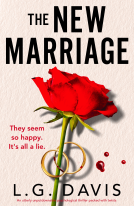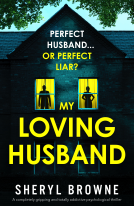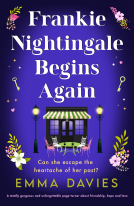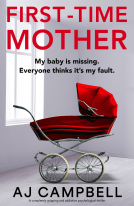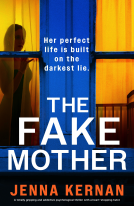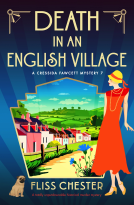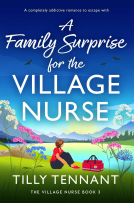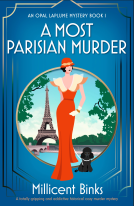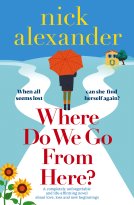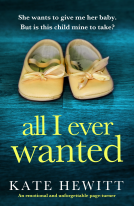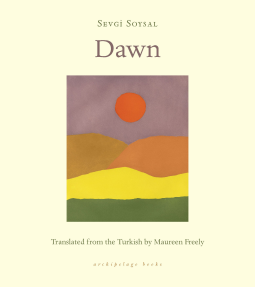
Dawn
by Sevgi Soysal
This title was previously available on NetGalley and is now archived.
Send NetGalley books directly to your Kindle or Kindle app
1
To read on a Kindle or Kindle app, please add kindle@netgalley.com as an approved email address to receive files in your Amazon account. Click here for step-by-step instructions.
2
Also find your Kindle email address within your Amazon account, and enter it here.
Pub Date Nov 15 2022 | Archive Date Nov 17 2022
Talking about this book? Use #Dawn #NetGalley. More hashtag tips!
Description
“Like Pamuk’s Snow, Dawn is the Turkish tragedy writ small. In contrast to Snow, it places gender at its heart.” --Maureen Freely
In Dawn, translated into English for the first time, legendary Turkish feminist Sevgi Soysal brings together dark humor, witty observations, and trenchant criticism of social injustice, militarism, and gender inequality.
As night falls in Adana, köftes and cups of cloudy raki are passed to the dinner guests in the home of Ali – a former laborer who gives tight bear hugs, speaks with a southeastern lilt, and radiates the spirit of a child. Among the guests are a journalist named Oya, who has recently been released from prison and is living in exile on charges of leftist sympathizing, and her new acquaintance, Mustafa. A swift kick knocks down the front door and bumbling policemen converge on the guests, carting them off to holding cells, where they’ll be interrogated and tortured throughout the night.
Fear spools into the anxious, claustrophobic thoughts of a return to prison, just after tasting freedom. Bristling snatches of Oya’s time in prison rush back – the wild curses and wilder laughter of inmates, their vicious quarrels and rapturous belly-dancing, or the quiet boon of a cup of tea. Her former inmates created fury and joy out of nothing. Their brimming resilience wills Oya to fight through the night and is fused with every word of this blazing, lucid novel.
Advance Praise
“The fluid shifts in points of view underscore the precariousness of the characters’ lives during a tumultuous and violent period following a recent coup . . . [Dawn] powerfully underscores how the threat of violence drives all the characters into suspicion and paranoia. This story of persecution convinces with its urgency and humanity.”
--Publishers Weekly
"With the unflinching eye of a journalist and the sensitivities of a novelist, Soysal reveals one night of horror threaded with moments of possibility and human connection. Maureen Freely’s translation brings Soysal’s riveting words to a wider audience, one courageous woman’s story, a necessary story for our whole fragile world."
--Patty Dann, author of Mermaids and The Wright Sister
With a clarity and courage rooted in her own experiences as a political prisoner, Sevgi Soysal unflinchingly exposed the suffering and defiance of women in 1970s Turkey, and more broadly the conflicts inherent in personal and political loyalties which continue to resound in our time. A brutal but ultimately rewarding novel, and a timely and typically sensitive translation by Maureen Freely.
--Alev Scott, author of Ottoman Odyssey
"Instead of making the pain epic, making love unrealistic, and making the revolution utopian, [Sevgi Soysal] caressed the pain with compassion . . . and made the revolution stubbornly vital."
--Can Gürses
"[Soysal's] writings, full of courage, malice, disobedience and irony, do not so much reflect an existing feminist movement on the streets . . . as forge a new voice, inquiring into the power of capital and men, while keeping in mind the tempestuous and fickle nature of human relationships, with their power to subvert, inflame and destroy . . . Defiant, flawed, piercing. Reading . . . Soysal today restores the volatility and violence of female concerns, and expands our horizons of understanding how inequality operates."
--Helen Mackreath, The White Review
"Startling reflections on beauty and freedom are woven throughout [Dawn]. An exciting translation of a feminist novel that renders a nuanced picture of the conflicting ideologies of 1970s Turkey."
--Kirkus Reviews
Available Editions
| EDITION | Other Format |
| ISBN | 9781953861382 |
| PRICE | $20.00 (USD) |
| PAGES | 350 |
Featured Reviews
Dawn by Sevgi Soysal shows of how things can change and also stay the same. What happens in this book is happening these days too. This is a very important work by a feminist author, it tells story of people who during martial law and in detention, unashamedly reveal their fear, doubt and love. Her ability to observe and describe is unique. I hope more of her works is on its way.
“Dawn” – Sevgi Soysal (translated from Turkish by Maureen Freely)
But this was not the time for idle soul searching. All over the city, police were kicking in doors. This was just one raid of many.
Published by @archipelagobooks on 15th November, my thanks to them and @netgalley for a free copy.
Originally published in Turkey in 1975, shortly before the author’s death, “Dawn” covers 12 hours under the oppressive and paranoid of the military regime at the time. Oya, the main character, has just been released from a year in political prison, followed by a shorter spell in civil prison, now exiled to the city of Adana. She attends a meal in a family home, only for the event to be raided by police and all the attendees arrested. The rest of the books shows the events of the night, intermingled with backstories told with a clear feminist edge.
Maureen Freely, the translator, compares the book in the preface to Orhan Pamuk’s Snow, in that “it is the Turkish tragedy writ small”, though in contrast “(Dawn) subjects that tragedy’s scars and fissures to a female gaze”. I certainly enjoyed that gaze a lot, the threats both implied and real that these women face at the hands of untethered power - some very hard scenes appear at points here, so some trigger warnings to consider. Soysal creates scenes of visceral emotion both in the hands of the police and in Oya’s memories of prison, which are clearly based on the author’s own experiences. The characters go through the gamut, each finding sources of strength to resist and oppose, to demand their rights and freedom, to be able to see the dawn.
Another excellent Archipelago release, one that I recommend for those who like political novels with feminist tones
 Despoina F, Librarian
Despoina F, Librarian
Beautiful and heartbreaking book that is difficult to believe was written in the '70s. The characters were flessed out and felt real. Throughout the whole book I could feel the narrators being around me and talking about their past, their traumas, their fears. The feminist and socialist views are a central theme throughout all of it.
Set in a span of 12 hours or so, the books gives a glimple of the Turkish dictatorship of the 70s, and the fear and paranoia that came along with it. A haunting tale that reflects the realities of thousands of people and transcends borders. Would recommend it to everyone, and definitely for the general collection of libraries.
Thank you to netgalley and the publisher for providing a copy for review.
 Ilse A, Reviewer
Ilse A, Reviewer
Waiting for an uncertain dawn
Lately reading an essay of Salman Rushdie on censorship, expounding to his readers that for many of us liberty and freedom of speech come as naturally and unnoticed like the air we breathe, this novel, even if set in the early seventies and published in 1975 comes across as written yesterday. It is a trenchant remonstrance not to take personal, political and artistic freedom for granted, even if one is living in a part of the world that is less inclined than the current Turkish authorities to silence writers, journalists and artists, wielding the law against them as a weapon, prosecuting and jailing them.
Having been imprisoned and exiled for her left wing political views after the military coup in 1971(*), the Turkish novelist Sevgi Soysal (1936-1976 ) enrols in the apparently longstanding troublesome relationship the Turkish authorities at diverse periods in the history of the state maintain with some of its writers and intellecuals (Orhan Pamuk, Aslı Erdoğan, Ahmet AltanI Will Never See the World Again).
Get yourself out of this. Now! You must choose your battles carefully, very carefully indeed. As carefully as love. You must be open to all battles, see the beauty in the world and its importance. But you must choose the ones you wish to fight. What use will beautiful sentences do me in here? Beauty knows no shadows. It has no place in here.
Rushdie writes that At night, as we fall asleep, we assume we will be free tomorrow, because we were free today. The creative act requires not only freedom but also this assumption of freedom..This novel gives an illustration of the impact on individual lives when that assumption of waking up as a free person is upended.
The novel takes place during one night when a gathering at a dinner party in a house in the south-Eastern Turkish town of Adana is raided by the police and three of those present are taken to the police headquarters for interrogation: Oya, a journalist who was sent to Adana into exile after being imprisoned for a year in Ankara as a political prisoner (as Sevgi Soysal was herself); Mustafa, a teacher who also spent time in prison because of his left wing political activities and was recently released, and Ali, Mustafa’s uncle, a worker and the host of the dinner. During the long night of interrogation they reflect on their lives and beliefs while they are at the mercy of the police . In a stream of consciousness narrative their thoughts wander over past and present traumatising experiences of detainment, humiliation, torture and violence, over feelings of isolation, reflecting on their own revolutionary élan, wishes of reform and defeatism. Oscillating between their reflections and impressions, Sevgi Soysal reveals their different ideological and psychological struggles, vulnerabilities and doubts, intermingled with the points of view of other family members, fellow prisoners they knew in the past and the thoughts of officials and police officers who impose their own agenda, whether or not they abuse their power to guarantee the social and economic order according to martial law or to secure their own position in the hierarchy.
Soysal’s direct and austere prose skilfully draws the reader into the minds of the characters. Touching on power balances between men and women, the dynamics within the family and marriage, the contrasts between town and countryside, the various and contradicting loyalties of people depending on the multiple groups they belong too, torn between traditional and modern ideas, she is strikingly frank and open on sexuality and the body (one of her books was banned for obscenity), making a powerful feminist point through conveying Oya’s anxiety that her period might start and her interrogator might see the blood stains, realising that if we see our own bodies as shameful, if its untold secrets are mysteries even to us, if we censor our thoughts, lest they be judged evil, how are we ever to stand up for our beliefs?. Her depiction of the violence inflicted on the prisoners and how it is varied according to their origin, sex or class is harrowing. Nonetheless the brutality of these scenes, Sevgi Soysal’s realistic evocation of life in prison is interspersed with moments of humour, light, resilience and courage; her prose breathes an indomitable spirit.
The title of this novel can be read literally as well as metaphorically: once the night is gone and dawn arrives, Sevgi Soysal leaves it open what will become of her three protagonists- in some way their uncertain future conjures up questions on what might become of Turkey in the future, once the darkness of the depicted age will lighten up.
The introduction of the translator sheds a light on Sevgi Soysal’s personal activism and experience in prisons, making the fictional rendering of them in the novel even more poignant. Reminiscent of Oriana Fallaci’s A Man (on the detention and subjection to torture of Alexandros Panagoulis, the Greek politician and poet who fought against the Regime of the Colonels (1967-1974)), this book is a powerful testimony that legality isn’t synonymous to legitimacy with regard to human rights.
Oh, the mistakes you can make, when longing for a friendly face grows too strong.
 Reviewer 823951
Reviewer 823951
Wow loved this book…..As night falls in Adana, köftes and cups of cloudy raki are passed to the dinner guests in the home of Ali – a former laborer who gives tight bear hugs, speaks with a southeastern lilt, and radiates the spirit of a child. Among the guests are a journalist named Oya, who has recently been released from prison and is living in exile on charges of leftist sympathizing, and her new acquaintance, Mustafa. A swift kick knocks down the front door and bumbling policemen converge on the guests, carting them off to holding cells, where they’ll be interrogated and tortured throughout the night.
Fear spools into the anxious, claustrophobic thoughts of a return to prison, just after tasting freedom. Bristling snatches of Oya’s time in prison rush back – the wild curses and wilder laughter of inmates, their vicious quarrels and rapturous belly-dancing, or the quiet boon of a cup of tea. Her former inmates created fury and joy out of nothing. Their brimming resilience wills Oya to fight through the night and is fused with every word of this blazing, lucid novel.


